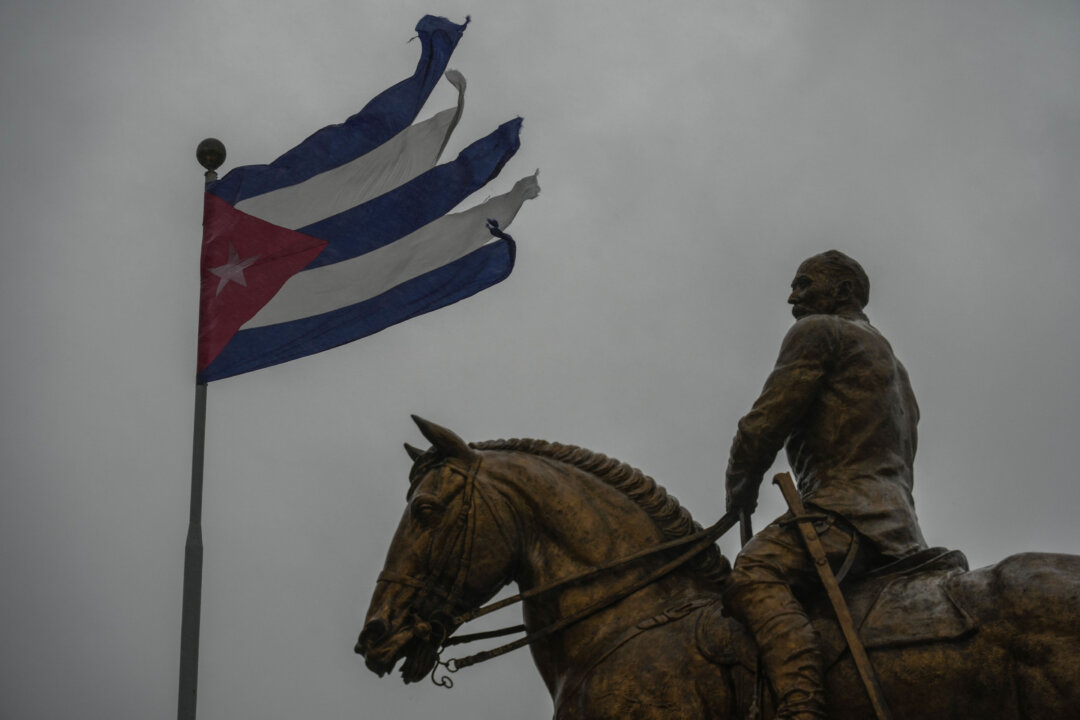Requested by U.S. allies, the move is part of a deal for Cuba to release anti-communist protesters imprisoned in the country.
A senior administration official confirmed that President Joe Biden will inform Congress on Jan. 14 that he is taking communist Cuba off the U.S. State Department’s state-sponsored terrorism list, as well as other steps to facilitate the release of political prisoners arrested for protesting the island’s communist regime.
“We expect and anticipate that these measures announced today will bring very quick relief to the many dozens of Cubans who were arrested in conjunction with the July 2021 protests, as well as bring relief to their family members,” the official said.
“Today’s actions demonstrate that President Biden’s Cuba policy, which is focused on achieving practical results with respect to human rights in Cuba, will pay dividends for the Cuban community.”
According to a second senior administration official, the decision to remove Cuba from the state-sponsored terror list comes after several allies had asked that it be removed. Allies mentioned include Colombia, Brazil, the European Union, Canada, and Chile.
Reporters asked about the timing of Cuba’s removal from the terror sponsor list, noting that less than a week remains in Biden’s presidency. Questions were also raised about how easily the incoming Trump administration could put Cuba back on the list.
Cuba had been taken off the list during the Obama administration’s rapprochement with the communist nation. Cuba’s re-designation as a state sponsor of terrorism came on Jan. 11, 2021, the final days of Trump’s first term. It was due in part to allegations that Cuba was harboring leaders of the Leninist guerrilla terrorist group, the National Liberation Army of Colombia.
The officials said that Cuba’s status on the list was under constant review by the federal government and intelligence agencies. Removal requires a nation to show no engagement in terrorist activity for at least six months and to provide assurance that it would not engage in terrorism going forward.
During the previous six months, Colombia asked that Cuba be removed from the list, citing its positive role in Colombia’s domestic peace talks in October 2024.
“This administration has great respect for the views of the U.S. Congress, as we know the incoming administration will as well, and so we assess that there will be additional analysis conducted on this action that is being taken today,” one of the officials said.
“However, given the factual basis and assessment that has been conducted, we are comfortable with, comfortable and confident with, this decision to remove Cuba’s designation as a state sponsor of terrorism.”Along with removing Cuba from the terror list, the official confirmed that the outgoing president will put a pause on U.S. nationals’ ability to take legal action in U.S. courts regarding confiscated property in Cuba.
He would also eliminate the “restricted list” of Cuban entities and subentities flagged by the State Department as being controlled by or acting for or on behalf of Cuban intelligence, military, or security services or personnel.
The State Department had warned that making direct transactions with those entities would disproportionately benefit those organizations at the expense of the Cuban people and private enterprise.
Specifically, the president will issue a waiver for Title III of the Helms-Burton Act, also known as the Libertad Act. This title authorizes U.S. nationals who have claims to property confiscated in Cuba to file lawsuits concerning that property.
According to the State Department, the title allows the president to suspend lawsuits for up to six months “if it is necessary to the national interest of the United States, and will expedite a transition to democracy in Cuba.” This pause has been issued multiple times since the Act’s signing in 1996.
Biden will also eliminate the restricted list by rescinding National Security Presidential Memorandum Five, titled “Strengthening the Policy of the United States toward Cuba.” Effective Jan. 8, 2021, the list includes scores of hotels across the island.
The senior administrative official could not confirm an exact date for when or how many of the anti-communist protesters would be released, but he said he was confident that they would be released before the end of Biden’s term on Jan. 20.
The officials said the Catholic Church is facilitating the release.
“It is our understanding that the Catholic Church is significantly advancing in agreement with Cuba to undertake a set of actions that will allow for the humanitarian release of a significant number of political prisoners in Cuba and those who have been detained unjustly,” he said.
“We also recognize that the Cuban government has been engaging directly in dialog with the Catholic Church, and this has been an important conversation, especially since it’s taking place in the context of the Pope’s Jubilee year with the theme: the pilgrims of hope.”

